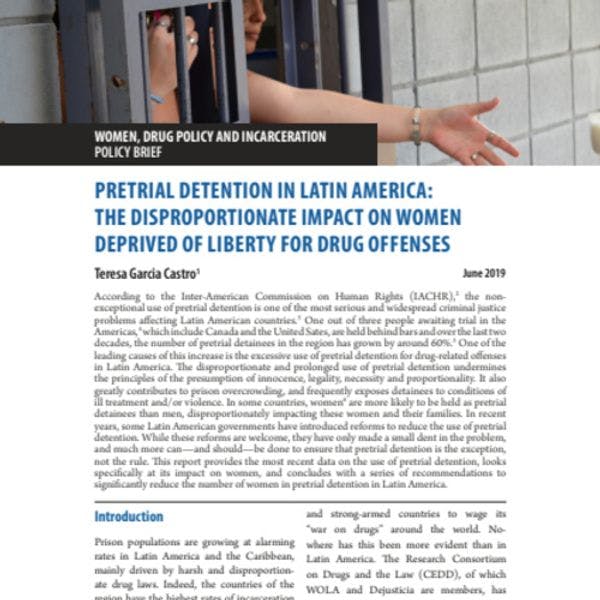Pretrial detention in Latin America: The disproportionate impact on women deprived of liberty for drug offenses
According to the Inter-American Commission on Human Rights (IACHR), the nonexceptional use of pretrial detention is one of the most serious and widespread criminal justice problems affecting Latin American countries. One out of three people awaiting trial in the Americas, which include Canada and the United Sates, are held behind bars and over the last two decades, the number of pretrial detainees in the region has grown by around 60%.
One of the leading causes of this increase is the excessive use of pretrial detention for drug-related offenses in Latin America. The disproportionate and prolonged use of pretrial detention undermines the principles of the presumption of innocence, legality, necessity and proportionality. It also greatly contributes to prison overcrowding, and frequently exposes detainees to conditions of ill treatment and/or violence. In some countries, women are more likely to be held as pretrial detainees than men, disproportionately impacting these women and their families.
In recent years, some Latin American governments have introduced reforms to reduce the use of pretrial detention. While these reforms are welcome, they have only made a small dent in the problem, and much more can—and should—be done to ensure that pretrial detention is the exception, not the rule.
This report provides the most recent data on the use of pretrial detention, looks specifically at its impact on women, and concludes with a series of recommendations to significantly reduce the number of women in pretrial detention in Latin America.
Downloads
Regions
Related Profiles
- Washington Office on Latin America (WOLA)
- International Drug Policy Consortium (IDPC)
- Dejusticia
